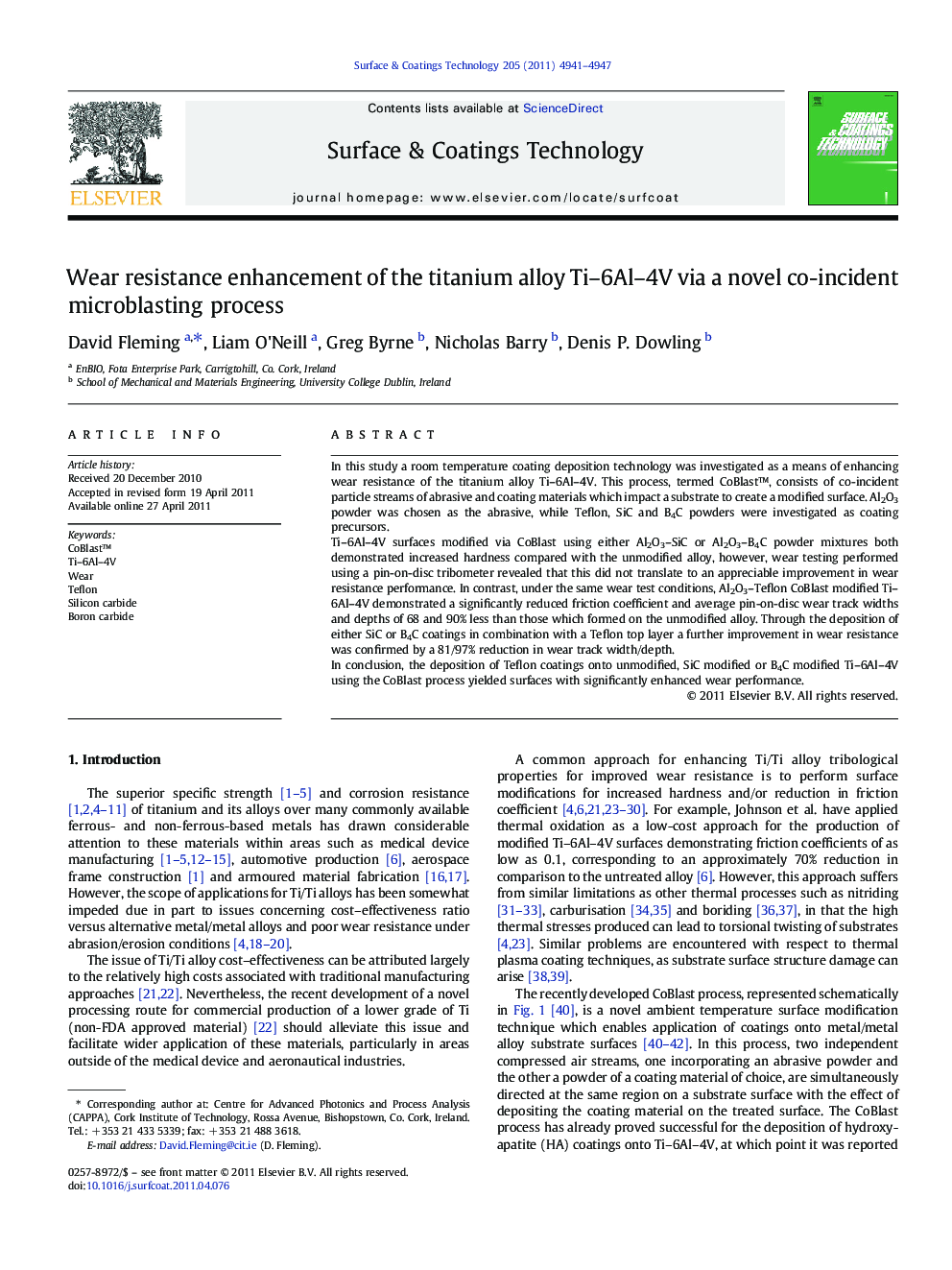| Article ID | Journal | Published Year | Pages | File Type |
|---|---|---|---|---|
| 1658534 | Surface and Coatings Technology | 2011 | 7 Pages |
In this study a room temperature coating deposition technology was investigated as a means of enhancing wear resistance of the titanium alloy Ti–6Al–4V. This process, termed CoBlast™, consists of co-incident particle streams of abrasive and coating materials which impact a substrate to create a modified surface. Al2O3 powder was chosen as the abrasive, while Teflon, SiC and B4C powders were investigated as coating precursors.Ti–6Al–4V surfaces modified via CoBlast using either Al2O3–SiC or Al2O3–B4C powder mixtures both demonstrated increased hardness compared with the unmodified alloy, however, wear testing performed using a pin-on-disc tribometer revealed that this did not translate to an appreciable improvement in wear resistance performance. In contrast, under the same wear test conditions, Al2O3–Teflon CoBlast modified Ti–6Al–4V demonstrated a significantly reduced friction coefficient and average pin-on-disc wear track widths and depths of 68 and 90% less than those which formed on the unmodified alloy. Through the deposition of either SiC or B4C coatings in combination with a Teflon top layer a further improvement in wear resistance was confirmed by a 81/97% reduction in wear track width/depth.In conclusion, the deposition of Teflon coatings onto unmodified, SiC modified or B4C modified Ti–6Al–4V using the CoBlast process yielded surfaces with significantly enhanced wear performance.
Research highlights► We investigated potential of CoBlast™ for enhancement of Ti–6Al–4V wear properties. ► Improved wear performance shown by certain CoBlast™ modified Ti–6Al–4V surfaces. ► Unlike most deposition processes, this technique operates at ambient temperature. ► This novel process is likely applicable to a wide range of metal/metal alloys.
